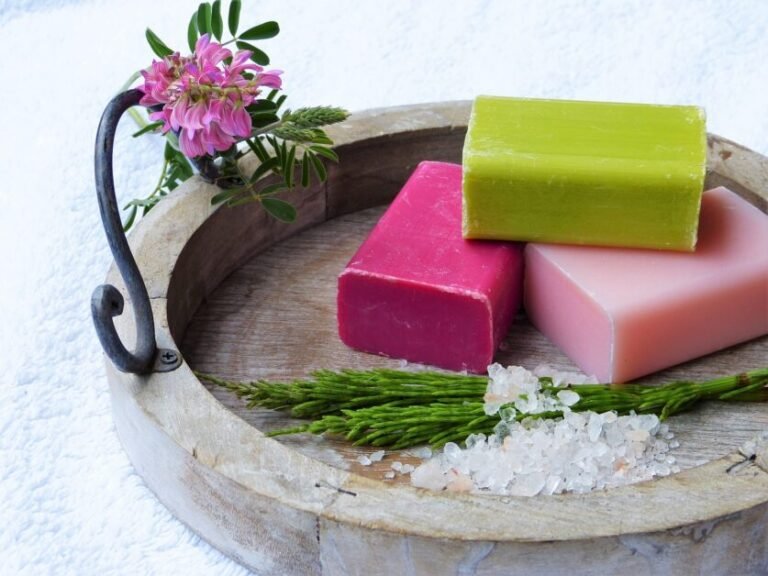Are Home Remedies Really Effective?
Interested in exploring alternative approaches to wellness? Look no further! In this article, we ponder the effectiveness of home remedies. At Alternative Medicine Facts, our goal is to provide you with reliable and evidence-based information so that you can make informed decisions about your health. Join us as we delve into the world of home remedies and discover their potential benefits.
Introduction
When it comes to taking care of your health and well-being, there are countless options available to you. One approach that has stood the test of time is the use of home remedies. These are natural remedies that have been passed down through generations, often using ingredients readily available in your own kitchen or garden. But are home remedies really effective? In this article, we will delve into the world of home remedies, explore their origins and history, understand the science behind them, evaluate their effectiveness, discuss their safety, examine their benefits and limitations, and provide guidelines for using them effectively. So, let’s dive in and discover the world of home remedies!Understanding Home Remedies
Definition of home remedies
Home remedies are natural treatments that have been utilized for centuries to alleviate various health issues. These remedies often involve using ingredients found in everyday households, such as herbs, spices, fruits, and vegetables, and are seen as an alternative to conventional medicine.Origins and history
The use of home remedies dates back thousands of years, with various cultures around the world embracing and passing down their knowledge from one generation to another. Traditional systems of medicine, such as Ayurveda, Traditional Chinese Medicine, and Native American healing practices, heavily rely on home remedies to restore balance and promote well-being.Common types of home remedies
Home remedies encompass a wide range of treatments that target specific health concerns. Some common types include herbal teas, poultices, essential oils, dietary changes, and simple lifestyle modifications. These remedies aim to address a variety of issues, from cold and flu symptoms to digestive problems, skin conditions, headaches, sleep problems, stress, and anxiety.The Science behind Home Remedies
How home remedies work
Home remedies work through various mechanisms, depending on the specific remedy and condition being treated. They often contain bioactive compounds that have medicinal properties, such as antioxidants, anti-inflammatory agents, and antimicrobial substances. These compounds interact with the body’s systems, promoting healing and restoring balance.Biological and chemical principles
Many home remedies rely on biological and chemical principles to exert their effects. For example, the antibacterial properties of garlic can be attributed to a compound called allicin. Similarly, the soothing effects of chamomile tea can be attributed to its natural compounds, such as bisabolol and chamazulene.Placebo effect
The placebo effect, a well-known phenomenon in medical research, can also play a role in the perceived effectiveness of home remedies. When individuals believe in the power of a remedy, their expectations and mindset can influence their subjective experience of improvement.Scientific studies and evidence
While home remedies have a long history of use, scientific studies and evidence supporting their efficacy are still limited for many remedies. However, some remedies, such as honey for cough relief or ginger for nausea, have garnered attention and support from scientific research.Effectiveness of Home Remedies
Overall effectiveness
The effectiveness of home remedies can vary depending on the specific remedy, the individual using it, and the condition being treated. Some remedies may provide significant relief and support healing, while others may have limited or no effect. It is important to approach home remedies with realistic expectations.Factors affecting effectiveness
Several factors can influence the effectiveness of home remedies, including the quality and potency of the ingredients, the correct preparation and application, individual variations in metabolism and response, and the overall health and severity of the condition being treated.Conditions suitable for home remedies
Home remedies are best suited for mild to moderate health conditions, such as minor ailments, discomforts, and temporary symptoms. They can be a valuable addition to self-care practices and can complement conventional medical treatments when appropriate. However, serious or chronic conditions may require professional medical intervention.Comparison with conventional medicine
Home remedies are often seen as a complementary approach or an alternative to conventional medicine. While conventional medicine relies on scientifically tested interventions, home remedies focus on natural and holistic approaches. The choice between the two depends on individual preferences and the nature of the health concern.Examples of Popular Home Remedies
Cold and flu remedies
When the sniffles and sneezes set in, many people turn to home remedies for relief. Some popular options include chicken soup for its potential immune-boosting properties, ginger tea to soothe a sore throat, and nasal irrigation with a saline solution to clear congestion.Digestive issues remedies
Home remedies have long been employed to tackle digestive issues such as indigestion, bloating, and constipation. Peppermint tea, probiotics, chamomile, and ginger are examples of remedies that can help alleviate these concerns.Skin conditions remedies
Home remedies offer an array of treatments for common skin conditions like acne, eczema, and sunburn. Honey masks, oatmeal baths, aloe vera gel, and tea tree oil are among the natural remedies often used to nurture and heal the skin.Headache and pain remedies
Instead of reaching for over-the-counter pain relievers, many individuals seek relief from headaches and pain through home remedies. Options include applying a cold or warm compress, massaging essential oils on the temples, using herbal teas like chamomile or peppermint, or practicing relaxation techniques.Sleep problems remedies
For those struggling with sleep issues, home remedies can provide non-pharmaceutical alternatives. Relaxation techniques, such as meditation and breathing exercises, herbal teas like valerian or chamomile, and creating a soothing sleep environment are commonly suggested remedies.Stress and anxiety remedies
Unwinding and managing stress and anxiety can be aided by various home remedies. Practices such as aromatherapy with lavender essential oil, engaging in physical activity, practicing mindfulness, and seeking support from loved ones can all contribute to reducing stress levels.Safety of Home Remedies
Importance of proper usage
While home remedies can be safe and effective, it is crucial to use them properly. Following the recommended instructions, using fresh and quality ingredients, and avoiding excessive or prolonged use can help ensure safety.Possible risks and side effects
As with any form of treatment, home remedies can carry risks and potential side effects. Allergies, interactions with medications, and individual sensitivities are factors to consider. It is essential to be aware of any potential risks and seek professional advice when needed.Interactions with medications
Home remedies can interact with prescribed medications, leading to reduced efficacy or adverse effects. It is crucial to consult with a healthcare professional if you are on medication to ensure there are no interactions between home remedies and your prescribed treatment.Warnings and precautions
Certain home remedies may not be suitable for everyone, such as pregnant women, individuals with specific medical conditions, or those undergoing specific treatments. It is important to be aware of any warnings or precautions associated with home remedies and consult with a healthcare professional if necessary.Benefits of Home Remedies
Cost-effectiveness
One significant advantage of home remedies is their cost-effectiveness. Many ingredients used in home remedies are readily available and affordable, making them a budget-friendly option compared to conventional medicine.Accessibility and convenience
Home remedies are often easily accessible, with ingredients found in most households or local stores. This accessibility and convenience allow individuals to try remedies promptly and with minimal effort.Natural and organic options
For those seeking natural and organic approaches to wellness, home remedies are a popular choice. These remedies often involve using whole foods, herbs, and natural ingredients, minimizing exposure to synthetic chemicals.Empowerment and self-care
Using home remedies empowers individuals to take an active role in their health and well-being. By understanding and employing these remedies, individuals can develop a sense of control, self-reliance, and proactive self-care habits.Promotion of overall well-being
Home remedies often focus not just on treating symptoms but on promoting overall well-being. Through dietary changes, lifestyle modifications, and holistic approaches, home remedies can support lasting improvements to one’s physical, mental, and emotional health.Limitations of Home Remedies
Severity of conditions
Home remedies are not suitable for treating severe or life-threatening conditions. In such cases, professional medical intervention is crucial to ensure appropriate and immediate care.Lack of regulation and standardization
Unlike conventional medicine, home remedies lack standardized doses, quality control, and regulatory oversight. This variability poses challenges in ensuring consistency and safe usage, emphasizing the importance of relying on trusted sources and professional guidance.Dependency on individual knowledge and experience
The effectiveness of home remedies heavily relies on the knowledge and experience of the individual using them. Improper usage, lack of understanding, or misinformation can lead to ineffective treatment or potential harm.Delayed or inadequate treatment
While home remedies can provide relief for many ailments, it is important to recognize their limitations. In some cases, delaying or avoiding professional medical care in favor of home remedies can lead to inadequate treatment and potential complications.Guidelines for Using Home Remedies
Consulting healthcare professionals
Before using home remedies, it is essential to consult with qualified healthcare professionals, especially for significant health concerns or if you are already on prescribed medications. They can provide guidance, assess potential risks, and offer appropriate recommendations.Researching and evaluating
Do thorough research and evaluate the credibility of the sources before trying any home remedy. Look for evidence-based information and expert opinions to ensure you are making informed decisions about your health.Understanding limitations
Recognize the limitations of home remedies and when professional medical intervention is necessary. Be aware of warning signs, worsening symptoms, or persistent conditions that require expert evaluation and care.Proper dosages and administration
Follow recommended dosages and administration methods accurately. Pay attention to any specific instructions related to preparation, application, or timing to maximize safety and effectiveness.Monitoring and tracking progress
Keep a record of your usage and monitor your progress. Note any changes in symptoms, overall well-being, or reactions to the home remedies. This information can help you evaluate the effectiveness of the remedies and provide important insights for future use.Conclusion
Home remedies have been used for centuries as an alternative approach to wellness. While their effectiveness may vary, they offer accessible, natural, and cost-effective options for many common ailments and discomforts. It is essential to approach home remedies with caution, understanding their limitations and potential risks. By seeking professional advice, doing thorough research, and being aware of personal health conditions, home remedies can be incorporated into a holistic and well-informed approach to self-care. So, embrace the wisdom of generations past and explore the world of home remedies as part of your journey to optimal health and well-being.







